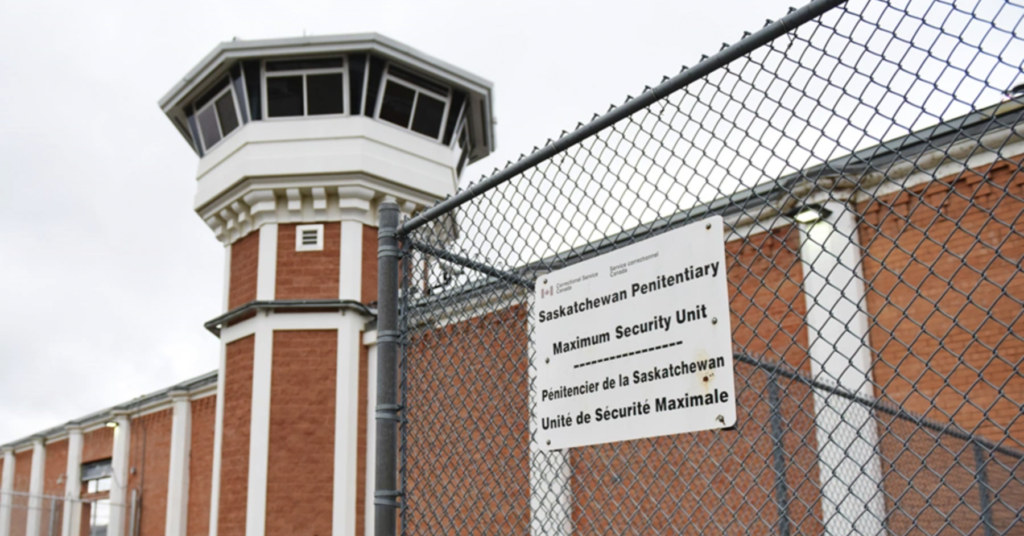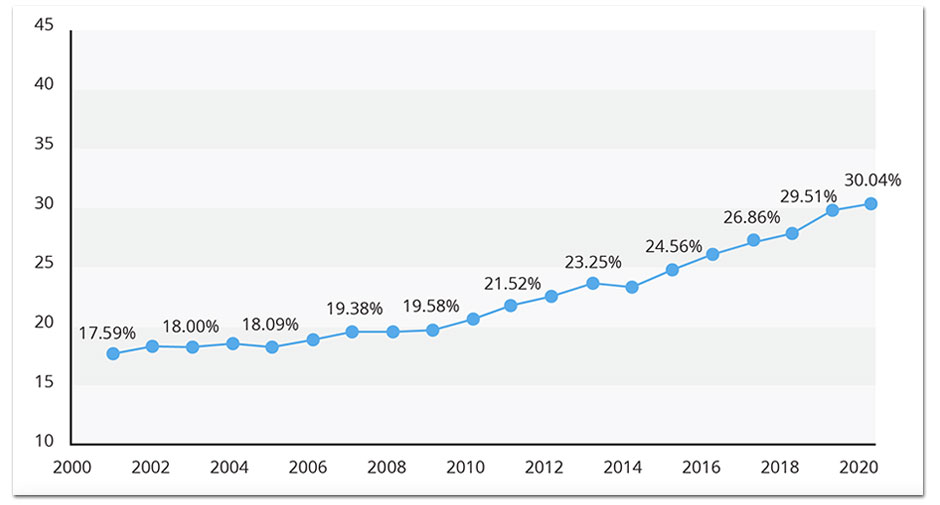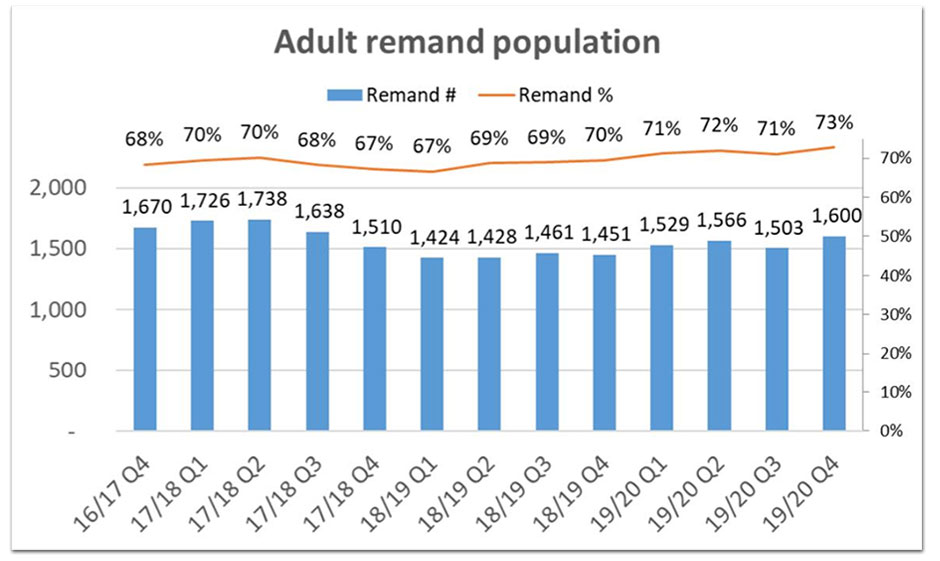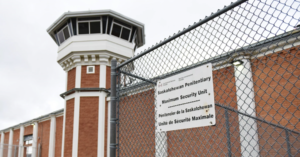
Canada’s Prairie Provinces are Failing to Address Systemic Racism in the Criminal Justice System, Experts Say
Manitoba and Saskatchewan have failed to implement the Truth and Reconciliation Commission’s calls to action
Manitoba and Saskatchewan are failing to implement the Truth and Reconciliation Commission’s calls to action to address the overrepresentation of Indigenous peoples in prisons and jails, experts say.
The TRC’s Calls to Action call upon all levels of government to address the overrepresentation of Indigenous peoples in custody, invest in prevention programs, find alternatives to incarceration and produce annual progress reports on these initiatives:
“30. We call upon federal, provincial, and territorial governments to commit to eliminating the overrepresentation of Aboriginal people in custody over the next decade, and to issue detailed annual reports that monitor and evaluate progress in doing so.
31. We call upon the federal, provincial, and territorial governments to provide sufficient and stable funding to implement and evaluate community sanctions that will provide realistic alternatives to imprisonment for Aboriginal offenders and respond to the underlying causes of offending.”
Yet the number of Indigenous people incarcerated in federal prisons has been steadily rising — Indigenous people currently make up 30% of federal inmates despite making up only 5% of the general population in Canada.

Federally incarcerated
Indigenous population since 2001 (Office of the Correctional Investigator)
On a provincial level, the two Prairie provinces have the most work to do: Manitoba has the highest population of Indigenous people in Canada at 18%, followed by Saskatchewan at 16.3%, according to Statistics Canada.
Manitoba and Saskatchewan also have the highest rates of Indigenous adults incarcerated, making up 75% of overall admissions to jails in both provinces. In federal prisons, Indigenous adults make up 59% of admissions in Manitoba and 76% in Saskatchewan.
In Manitoba, 73% of all inmates in provincial custody are in remand, meaning they have not been convicted and are legally innocent. In Saskatchewan, 51% are in remand.
And yet the strategies used by Manitoba and Saskatchewan to reduce these numbers are only “token gestures” and “piecemeal” responses that will do little to address the problem, experts say.
Corey Shefman, a human rights attorney, has worked with families of Indigenous inmates who died in Manitoba corrections facilities, pursuing inquests for Will Ahmo and Errol Greene.
“What Manitoba is doing is putting a bandaid over a broken bone,” Shefman told PressProgress. “They’re doing enough that they can fill out a report, they’re certainly not doing enough to actually make a difference to actually change the facts on the ground.”
Manitoba issues an annual progress report regarding the TRC calls to action. The report highlights several initiatives: a working group to reduce the number of children in foster care who enter the correctional system, an $11 million dollar expansion to a Thompson court facility, and funding partnerships with local non-profits for community and restorative justice programs.
Shefman says the province could easily reduce Indigenous incarceration by properly applying current bail laws. The Gladue principle, established by the Supreme Court, encourages judges to seek out reasonable alternatives to imprisonment in sentencing Indigenous offenders.
“The government of Manitoba does not value Indigenous lives. You cannot have a jail system where 70% plus is Indigenous, have no real corrective policies in place to address that overrepresentation, and say that you are concerned about Indigenous lives and livelihoods.”

Portion of persons in custody who are awaiting disposition of their charges(Manitoba Justice)
Julia Quigley, a lawyer at Legal Aid Saskatchewan and President of CUPE 1949, says Saskatchewan has also made no real effort to reduce the number of Indigenous people in prisons.
“There have been maybe piecemeal attempts to have little pilot projects here and there, but nothing concerted on the part of the government to shift how we deal with criminal charges and with people charged with those offenses,” Quigley told PressProgress.
Saskatchewan’s TRC strategy includes an Elders advisory group to inform strategies to reduce the numbers Indigenous people in correctional facilities, but doesn’t explain what those strategies are. The Ministry of Corrections and Policing’s most recent annual report makes no mention of reconciliation or overrepresentation.
Quigley says the government’s funding priorities also don’t align with the TRC’s calls to action. Last year, Saskatchewan announced a $120 million expansion for a Saskatoon Correctional Centre remand facility and $11.7 million for Regina and Saskatoon police forces.
“I’ve had police say, in my presence, that they called certain areas of town or communities their “hunting grounds,” or they have talked about how they engage in self generated policing,” Quigley says. “That’s a very problematic approach for the police to take. It’s a big reason why we see these very disproportionate numbers of Indigenous people being held in custody.”
“All of my clientele are living in poverty, and many, many have addictions and mental health issues. Almost all of them are Indigenous, which means almost all of them are dealing with some degree of trauma, sometimes very extreme trauma, stemming from their own family history, community history, everything like that.”
Kim Beaudin, the National Vice Chief of the Congress of Aboriginal Peoples, is a Saskatchewan based outreach worker and political advocate for incarcerated Indigenous people across Canada.
The levels of violence and death in provincial jails are just as concerning as the numbers, Beaudin says. In 2021, there has been one death per month so far in Manitoba correctional facilities. In Saskatchewan, “decades” of suicides in jails prompted a provincial audit last year.
“To say that Canada doesn’t have a death sentence — that’s totally wrong, that’s inaccurate,” Beaudin told PressProgress. “Unfortunately, it’s Indigenous people that pay the price.”
“Some of the stories are stunning, I wish the public really knew what was going on behind closed doors,” Beaudin said. “But the government doesn’t talk about that. The Moe government doesn’t talk about that. Manitoba – they won’t say anything.”
The TRC Report draws an explicit connection between residential schools and prisons.
The “criminal legacy” of “removing children from their homes and forcibly separating them from their families and communities, language, and cultures” resulted in the “disturbingly high overrepresentation of Aboriginal people in prison.”
“Prison today is for many Aboriginal people what residential schools used to be: an isolating experience that removes Aboriginal people from their families and communities.”
“What’s frustrating is (governments) know they can address these kinds of issues,” Beaudin explained. “They just make a political decision not to do it.”
“I really believe that Indigenous people are political prisoners.”
Our journalism is powered by readers like you.
We’re an award-winning non-profit news organization that covers topics like social and economic inequality, big business and labour, and right-wing extremism.
Help us build so we can bring to light stories that don’t get the attention they deserve from Canada’s big corporate media outlets.
Donate



